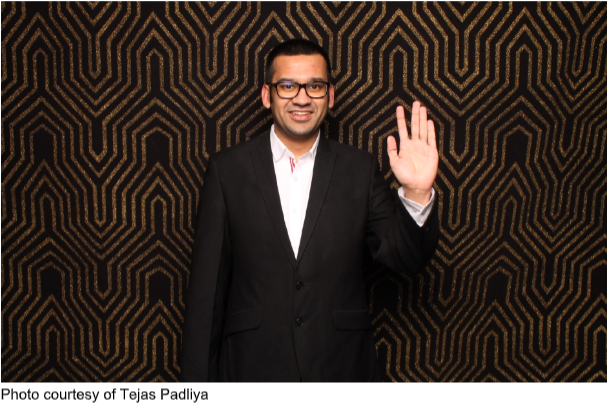
"The potential for AI to revolutionize healthcare is immense, and we're just scratching the surface," says Tejas Padliya, an engineer who has integrated artificial intelligence (AI) into clinical decision-making.
Padliya has developed advanced mobile applications that harness the power of machine learning and data analytics to improve patient outcomes and streamline healthcare delivery.
Padliya has innovated the healthcare technology sector and is committed to maximizing AI for the greater good. With over a decade of experience in software engineering, he has consistently created solutions that have profoundly impacted millions of lives across more than 120 countries.
Transforming Clinical Decision-Making
Padliya's work is grounded in his belief in AI's potential in healthcare. "Using machine learning algorithms and vast amounts of patient data, we can provide clinicians with real-time insights and recommendations, enabling them to make more informed decisions at the point of care," he explains.
This approach has particularly enhanced clinical decision-making, a critical aspect of healthcare that directly impacts patient outcomes.
A study analyzed the impact of AI-based decision support systems on patient outcomes and found that using AI algorithms significantly reduced diagnostic errors and improved the accuracy of treatment recommendations.
The researchers concluded that AI-powered tools have the potential to enhance the quality of care and optimize clinical decision-making processes.
Padliya's work effortlessly aligns with these industry trends with his outlook on integrating AI and data analytics into healthcare solutions. It has the potential to significantly improve patient outcomes, enhance clinical decision-making, and drive cost-effective, personalized care.
Bridging the Gap Between Technology and Healthcare
Padliya's success in integrating AI into healthcare can be attributed to his unique background and multidisciplinary approach. As the son of a physician, he grew up with a deep understanding of the challenges and complexities of patient care.
This firsthand experience and his technical prowess have enabled him to bridge the gap between technology and healthcare. He has been creating solutions that are innovative, practical, and user-friendly.
"One of the key challenges in implementing AI in healthcare is making sure that the technology is accessible and intuitive for healthcare professionals," Padliya notes. "When we collaborate closely with clinicians and understand their needs, we can design solutions that smoothly integrate into their workflows and provide tangible benefits."
However, some would argue that the increasing reliance on algorithms and machine learning could lead to losing human touch and intuition in patient care. They caution that while AI has the potential to augment clinical decision-making, it should never replace the skill and empathy of healthcare professionals.
The Future of AI in Healthcare
Despite these concerns, Padliya remains confident in integrating AI into healthcare. He dreams of a world where AI-powered solutions are uninterruptedly integrated into every aspect of patient care, from early diagnosis and personalized treatment plans to remote monitoring and post-discharge follow-up.
"The COVID-19 pandemic has accelerated the adoption of digital health technologies, including AI-powered solutions," Padliya observes. "This shift has highlighted the immense potential of these technologies to improve access to care, optimize resource allocation, and enhance patient outcomes."
As the healthcare industry progresses and embraces technological advancements, pioneers like Tejas Padliya are becoming more and more essential. With his perspective, technical know-how, and steadfast commitment to innovation, Padliya is poised to make a lasting impact in healthcare.
"The journey toward fully realizing the potential of AI in healthcare is just beginning," Padliya reflects. "But with each step we take, we move closer to a future where technology and human aptitude work hand in hand to deliver the best possible care to patients worldwide."









